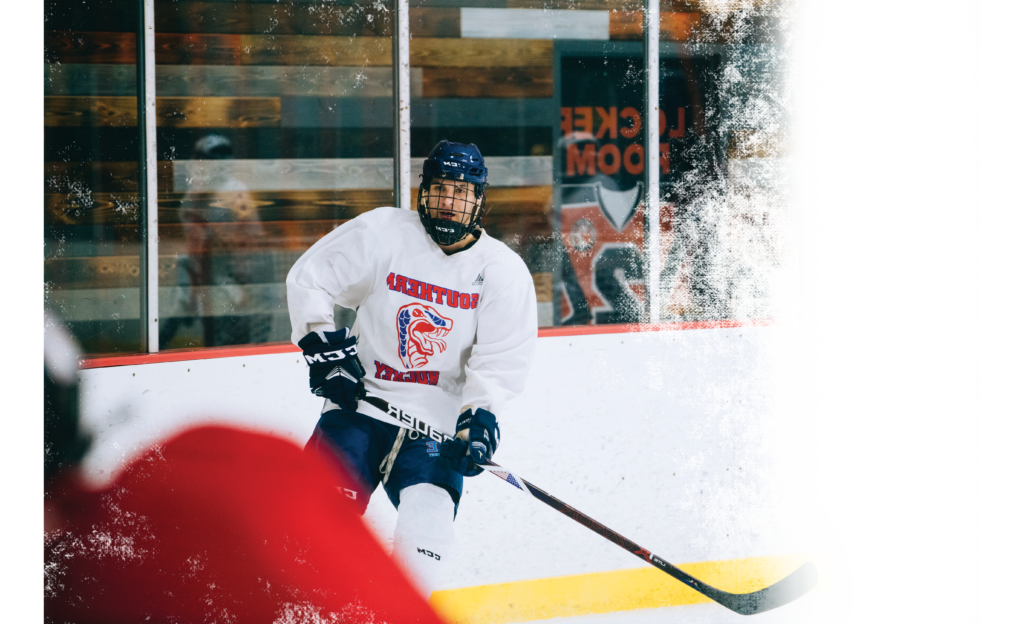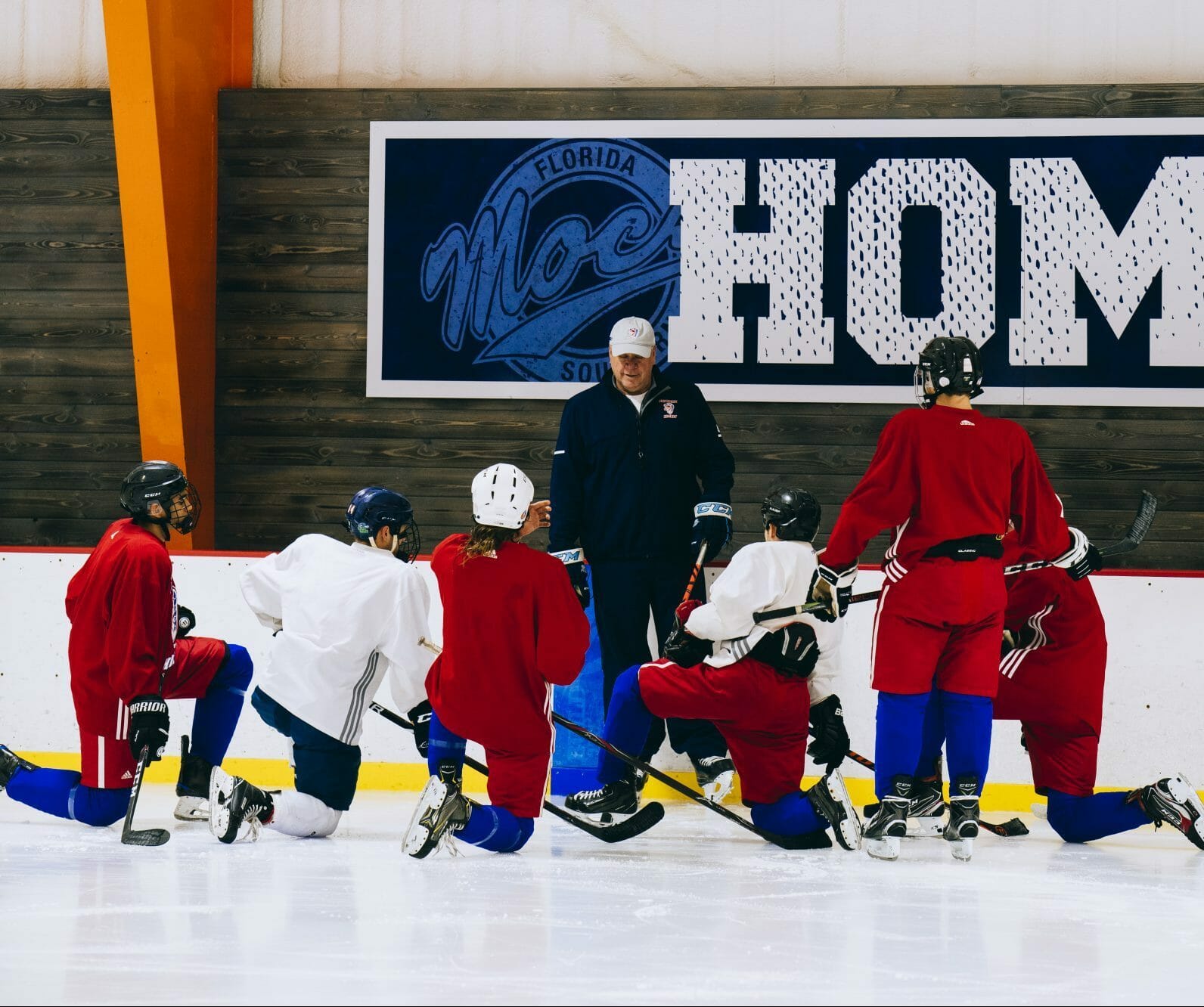Photography by Dan Austin
Florida Southern College’s inaugural year for their hockey team has already left its mark on the school’s growing athletic program.
 Heading into the 2019-2020 men’s hockey season was a scary moment for Florida Southern College players and head coach Gilles Richard. This season was not only the first for the club hockey team, but it also touted a combination of veteran hockey players and FSC students who wanted to give the sport a try for the first time. Despite the odds, the FSC men’s hockey team proved it shouldn’t be underestimated.
Heading into the 2019-2020 men’s hockey season was a scary moment for Florida Southern College players and head coach Gilles Richard. This season was not only the first for the club hockey team, but it also touted a combination of veteran hockey players and FSC students who wanted to give the sport a try for the first time. Despite the odds, the FSC men’s hockey team proved it shouldn’t be underestimated.
“[When] we started, everybody was invited to the tryouts, so I didn’t have any time to recruit,” says Richard. “It was basically who was on campus. We had about five or six guys who had hockey experience. And then some guys wanted to just try it from other sports. So, we put the gear on them and built the team from in house without any recruiting.”
Fortunately, Richard says he’s pleasantly surprised with how the season went.
“With their first road trip, I didn’t know what to expect. But we came out and we pushed [University of Southern Florida’s] development team to a 4-3 game, and then the next night it was a 1-0 loss. They had a lot of heart. This is our inaugural year, so it’s cool. It went shockingly awesome. Some of them were just so true to the game.”
While the mixture of experts and amateurs can be a muddied one, that’s not the story for the FSC men’s hockey team. The veteran players stepped up as leaders to take the newcomers under their wings, which Richard says isn’t always the case.
“In practices, there were guys who could fly and some who were barely skating at the beginning of the year. I was so impressed with how those kids worked together and became a team early on. They accepted each other. Usually, if you’re strong in a sport, practices can get slowed down and you don’t open up. But I was shocked at how well these kids get along. They love each other; they have a blast. We won a shootout in Wesley Chapel and they sang the whole way home. They came together really well.” 
Practices are more than just a way for the guys to develop their bond and improve their skills. Their off-campus home rink, the Lakeland Ice Arena, has also been a refreshing off-campus venue since it first opened its doors in September of last year.
“As a coach, you like to see development. We don’t concern ourselves with wins or losses. But how the team has come in a short time is the best part of the job.”
“They touch the ice three times a week for an hour and a half. They look forward to the outlet by getting off campus and getting on the ice. The kids that started [playing hockey this season] are here early, practicing all the time and trying to figure out how to get better,” says Richard.
While the arena is a little less than seven miles away from the campus, it’s certainly a place the men of FSC hockey can call home.
“They have a designated dressing room. We have a lot of ice time compared to a lot of club hockey. We have a home, and other teams don’t have a rink. They have to struggle to find practice time. We have a huge advantage here for Florida Southern to be able to have this facility,” says Richard.
The advantage of having a home rink is just one factor that has helped the team grow and develop in its first of many seasons.
“If you have ice time, you can get better, so they’ve come a long way. It’s nice to see how far the team has come in one season” he adds.
Richard leading the men of FSC hockey was a seamless transition for the Canadian, who has been on the ice for much of his life.
“I’ve been lucky. I’m originally from Canada. I went to the University of Canada and [played] hockey, came to the States and played in the minor leagues. I ran two pro teams, started a new pro team in Augusta, Georgia, and I was the general manager and the president of two clubs.”
Now, he says he’s just thankful to be able to pay it forward for the next generation of hockey stars.

“I have so much gratitude for the school to take a chance on a sport like this and the rink for the partnership. This group came from really being raw to knowing positioning, and watching their skills develop over the season has been awesome to watch. As a coach, you like to see development. We don’t concern ourselves with wins or losses. But how the team has come in a short time is the best part of the job.”
